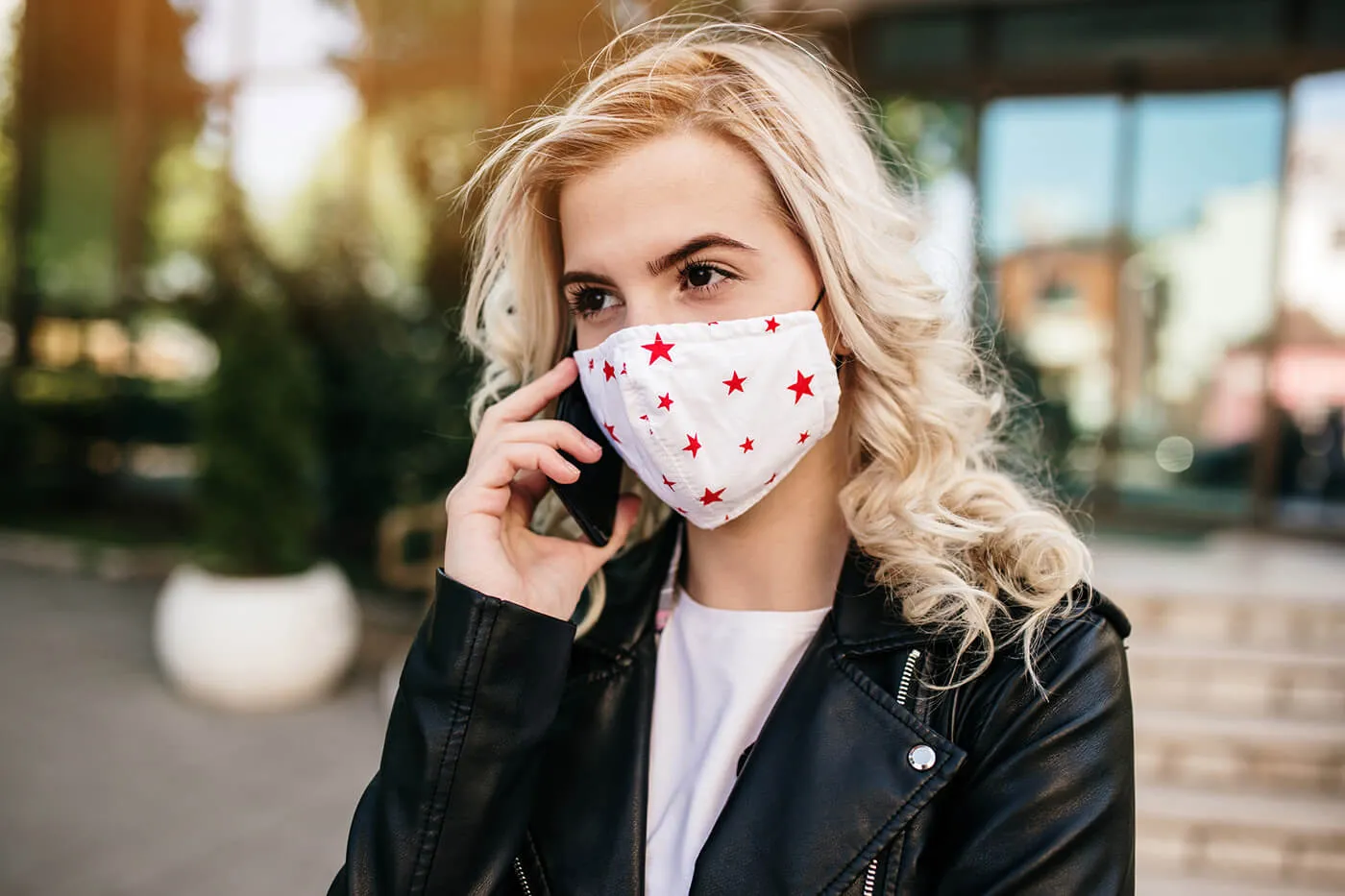Will Your Credit Card Cover Trip Cancellations Due to COVID-19?

The COVID-19 (coronavirus) pandemic has disrupted many industries around the globe, and the travel industry has been one of the hardest hit of all. Travel restrictions, quarantine orders and countrywide lockdowns have resulted in airlines cancelling flights, hotels shutting their doors and cruise ships remaining docked for the foreseeable future.
The disruption has also caused millions of travelers to change their plans or cancel trips altogether. If you are one of those people, you are probably looking into your options for getting your money back. The good news: Some credit cards cover trip and event cancellations due to COVID-19 as part of their trip interruption and cancellation insurance. You'll need to check the terms and conditions carefully, though. Here's what you need to know.
What Is Trip Cancellation and Interruption Protection?
Your credit card could reimburse you for some of the nonrefundable expenses of a canceled trip or one that ended early if you have trip cancellation or interruption protection. Those costs might include airfare for a cancelled flight, the cost of a cruise you skip, or the airfare for a last-minute flight home. As with any type of insurance, though, there are likely plenty of terms and conditions.
If your trip is canceled or cut short for a covered reason, like sickness or severe weather, you might be eligible for reimbursement with some credit cards for unused, prepaid and nonrefundable travel expenses. Generally, you need to use your eligible credit card to pay for at least part of your trip to qualify for coverage.
What Situations Are Included or Excluded?
Now we get to the fine print. Like almost any insurance policy, the terms and conditions of your credit card's trip interruption and cancellation coverage probably list plenty of exclusions, and pandemics usually fall under those. If you have been sick with the virus, however, that is typically covered, and could be where your credit card can help most of all.
- Who is covered: In order to be eligible for trip interruption and cancellation coverage, your credit card provider may require you to pay for all or a portion of a trip with your credit card or the rewards you earned with that account. This insurance may also cover immediate family members such as a spouse, parents or children on the same reservation.
- Pre-existing conditions and pandemics: You can't just cancel your trip for any reason, either. More important in terms of COVID-19, some credit card providers do not consider fear of traveling due to sickness or epidemic as a reason for the cancellation or interruption benefit
- If you actually had COVID-19: One of the situations that is usually covered by trip interruption and cancellation insurance is sickness or loss of life experienced by you or your traveling companion that prevents one of you from going on the trip. So if you had plans and simply wanted to cancel them because you were (understandably) afraid to travel due to COVID-19, you would probably be excluded from the card's trip interruption or cancellation coverage. However, if you needed to change or cancel travel plans because you, your travel companion or an immediate family member got sick with COVID-19, the card's coverage would probably apply to your circumstances.
- Case-by-case decisions: That said, given the unprecedented nature of the COVID-19 outbreak, many credit card issuers that offer trip interruption and cancellation coverage are working with their cardholders on a case-by-case basis to determine whether they can help. So you might have luck simply calling up your bank and asking what they can do for you.
- Nonrefundable expenses: One final thing to keep in mind: Eligible travel expenses include nonrefundable prepaid travel purchases charged by a travel supplier like an agency, tour operator, lodging, rental car agency, airline, cruise line or railroad, among other possibilities. And there are certain restrictions about what kinds of expenses are covered, as well as reimbursement caps on those. Before trying to invoke your card's trip interruption or cancellation coverage, make sure you read its specific terms and conditions to find out what you might be entitled to.
What to Do if Your Trip Is Cancelled Due to COVID-19
If you had plans that were cancelled or changed due to COVID-19, or are thinking about rescheduling some upcoming travels, here are the steps you should take.
Check With Your Travel Provider
The first thing you should do is check to see if there are any refund policies or change and cancellation waivers being offered by the company you booked your trip through before trying to file a credit card claim. That includes any airlines with which you purchased tickets, hotels where you booked stays, cruise lines you planned to sail with or online travel agencies like Orbitz or Expedia.
Many of these providers currently offer blanket fee waivers and full refunds for trips scheduled in the next few months. These usually apply when the airline, hotel, cruise line, agency or other entity is the one cancelling on you. If you are able to cancel your trip or event this way and get a full refund, you should be all set. If that fails, though, it is time to turn to your credit card.
File a Claim
If your plans have already been cancelled, or you are planning to cancel them and can directly point to a case of COVID-19 that either you, a traveling companion or an immediate family member has experienced, you can file a trip interruption or cancellation claim with your credit card. This would only be for anything you were not refunded for and could not claim from your airline, hotel or other provider.
Coverage policies are typically administered by third-party providers, so you will need to call your credit card issuer and get the benefit administrator's contact information to file a claim. Many companies simply let you file a claim online these days. Just keep in mind that there are usually time limits to do so.
You will probably have to submit completed and signed claim forms, your travel itinerary and documentation confirming the reason for cancelling or interrupting your trip, such as medical documents. Also be prepared to submit a credit card statement including your account number, copies of the refund or cancellation policies of any companies that you booked with, proof of expenses you incurred due to your travel changes, and any unused vouchers or tickets. It sounds like a lot, but on the plus side, a trip interruption or cancellation claim can usually be handled quickly.
Credit Cards That Offer Trip Interruption and Cancellation Protection
Although some credit card issuers have cut back on their travel protection perks in recent years, there are still plenty of fantastic rewards cards that offer benefits which should cover you if you get sick with COVID-19 under covered circumstances.
Be Prepared, Stay Protected
The rapid spread of COVID-19 around the world is unlike any other crisis in our lifetime. If you have been affected by COVID-19 and had to alter a trip because of it, your credit card's trip interruption and cancellation insurance might cover some of the costs you suffered.
Review your credit cards' benefit guides, and think about whether your circumstances might be covered by their trip coverage policies. If so, take the next steps toward filing a claim by gathering any supporting materials and contacting your benefit administrator. Doing so might save you a lot of money, which you may be able to put toward future trips once the travel industry and the world recovers.
Don’t apply blindly
Apply for credit cards confidently with personalized offers based on your credit profile. Get started with your FICO® Score for free.
See your offersAbout the author
Eric Rosen covers credit cards, loyalty programs, the aviation industry and hotels. In addition to Experian, Eric contributes to Bloomberg, Forbes, Business Insider, Travel + Leisure and Condé Nast Traveler on a variety of topics ranging from frequent-flier miles and business-class amenities to rain forest spas and reef-safe sunscreens.
Read more from Eric

